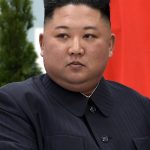Politics
North Korea Politics
This page explores North Korea’s political structure incorporating real-time RSS feed news and videos. By harnessing the power of RSS feeds, visitors can stay informed about the latest developments in North Korea’s politics as they happen. The dynamic nature of these feeds ensures that users receive up-to-the-minute updates on political events, policy changes, and significant milestones, enabling them to stay abreast of the ever-evolving political scene.

Kim-Jong-un
Incumbent
Kim Jong-un
since 10 January 2021
Image credit
North Korea, officially the Democratic People’s Republic of Korea (DPRK), is a socialist single-party state dominated by the ruling Workers’ Party of Korea (WPK) and the Kim family. Supreme Leader Kim Jong-un holds absolute power as head of state and commands all branches of government, the military, and the party. While the country has institutions like the Supreme People’s Assembly and the Central People’s Committee, they function largely to endorse decisions made by the WPK, with limited independent authority.
The judicial system lacks independence and is subject to party control, while political opposition and independent media are not permitted. The WPK monopolizes political power, using state-controlled media to spread propaganda and reinforce loyalty to the regime. North Korea is widely criticized for its poor human rights record, suppression of political freedoms, and restricted access to information, with much of its internal workings concealed from international scrutiny.
Unless other sources are listed, original content is provided by ChatGPT. ChatGPT may produce inaccurate information about people, places, or facts. #NorthKorea #NorthKoreaPolitics #NorthKoreaNews #NorthKoreaNewsToday #NorthKoreaRSSFeed #BlahFace



